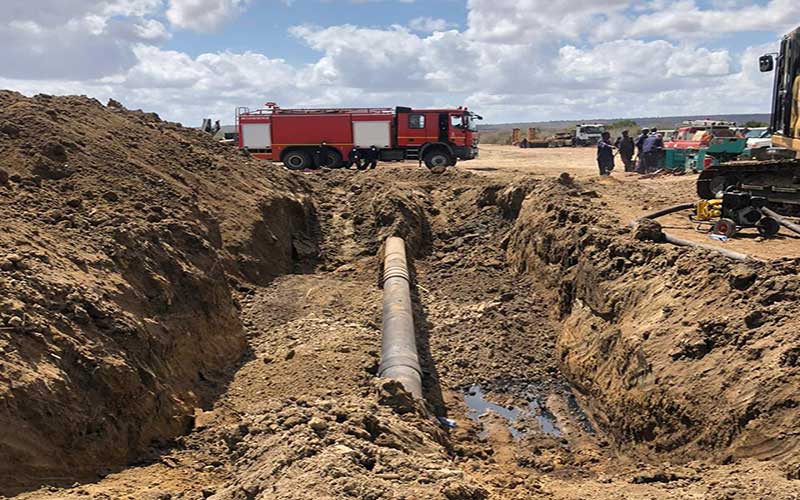×
The Standard e-Paper
Join Thousands Daily

Kenya Pipeline Company personnel fix a broken pipe at KM40 Samburu. [Courtesy, KPC]
There will be no fuel shortage in the country following an huge oil spillage at Samburu, the Kenya Pipeline Company (KPC) has assured.